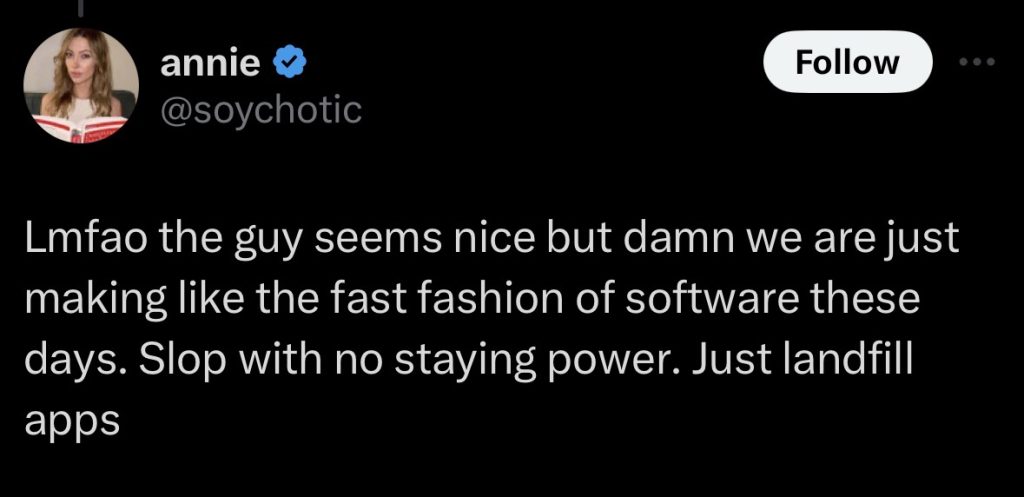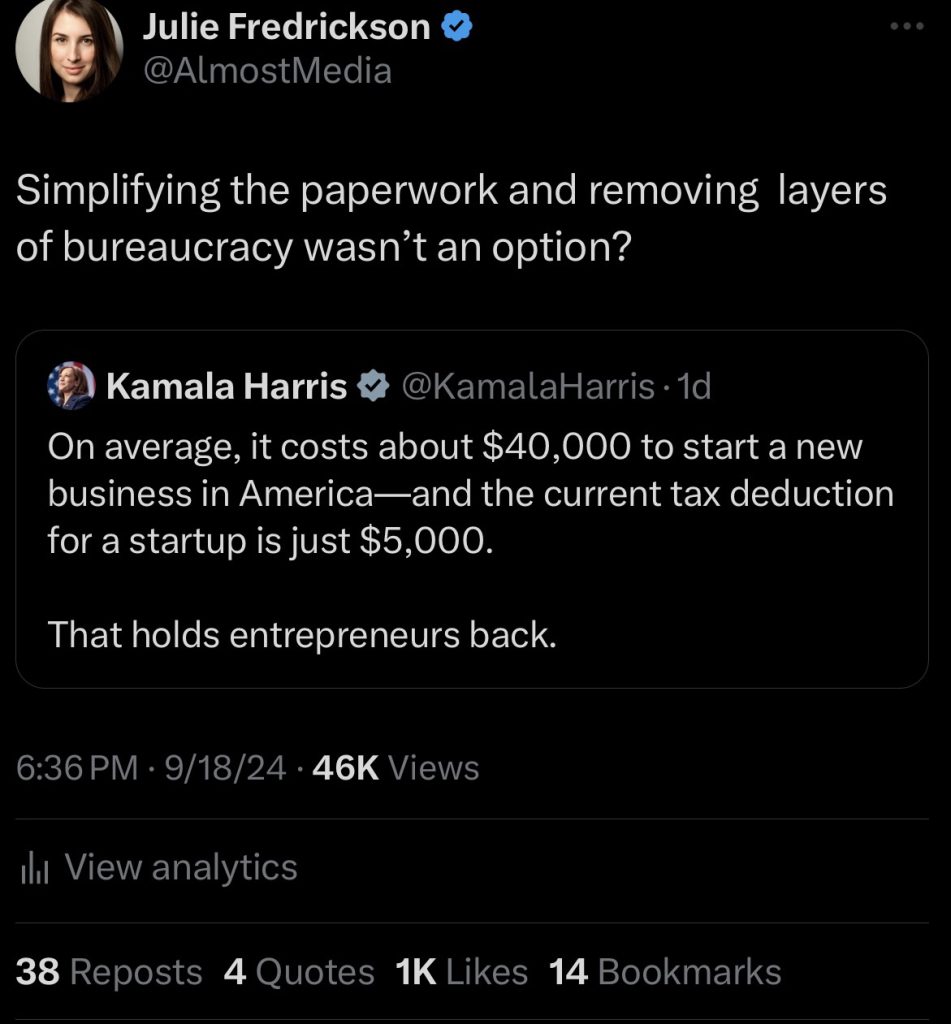A lot is going on and I have little concentration in me today so I’ll keep this to a few tidbits of things I have on my radar.
The artificial intelligence x-risk Doomers are doing absolutely nothing to beat the charges that California SB 1047 was all about their fear of an imagined apocalypse and had absolutely nothing to do with useful policy or regulation.
Frankly I’d expect better from Scott Alexander and I’ll warn the Effective Altruist and Open Philanthropy crowd that if you willing to parlay with socialists don’t be surprised if those who advocate for broad state powers feel fine about using the state monopoly on violence on you when your interests no longer align. Liberals get the boot too.
But nobody listens to a cranky old libertarian like me in this multi-polar world. Though if you are inclined to listen to me please do read my investor report for the quarter. We are raising for our next fund and I’d be delighted to pitch you if you are the sort who has a spare 100K to invest in atomics, databases, decentralized compute and other oddball world changers.
In other bits of frustrating press narratives the New Yorker can soak up 34 minutes of your time with a “Silicon Valley matters in politics now more than ever” piece which is about how politico Chris Lehane is doing his job and representing the interests of an industry that still has enough money to pay his fees.
Perhaps politicians will consider not killing the golden goose that is the information economy and try listening to the folks who still make enough money to be considered good targets for more taxation about how we can keep making them tax money.
But I’m guessing if I ask Detroit how that ask to the government ends I won’t like the answer. I could ask Baltimore but Frank Sobotka and the Key Bridge are no more.
I truly thought one was supposed to get mellower in one’s old age but my politics seem to be rooted deeper than I realized. I just believe in markets and the prosperity that comes from free asssociation.



